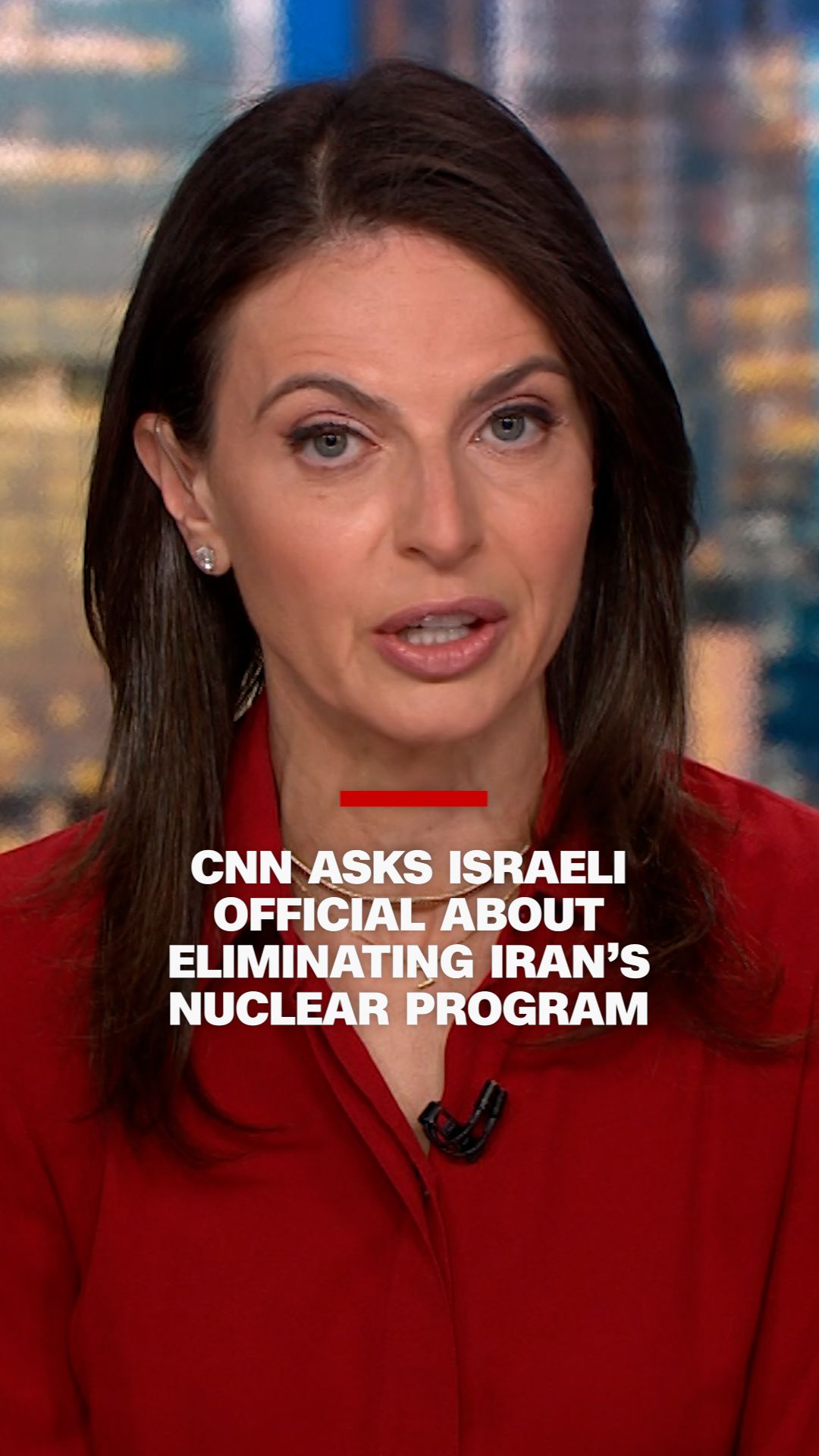Articles in this Cluster
17-06-2025
In a CNN interview, former Israeli Defense Minister Yoav Gallant said dismantling Iran’s nuclear program is the responsibility of the “free world,” amid escalating Israel-Iran strikes. The segment, part of broader coverage of the conflict, highlighted Israel’s recent attacks on Iranian sites, Iran’s retaliatory missile barrages causing civilian casualties in Israel, and focus on Iran’s Fordow nuclear facility. Israeli officials defended striking now, claiming significant damage to Iran’s launch capabilities, while reports from both countries showed expanding civilian impact and continued tit-for-tat escalation.
Entities: Yoav Gallant, Israel, Iran, CNN, Fordow nuclear facility • Tone: analytical • Sentiment: negative • Intent: inform
17-06-2025
CNN’s Wolf Blitzer interviews Israeli President Isaac Herzog about Israel’s decision to strike Iran amid an escalating conflict. Israel’s military says it destroyed over 120 Iranian missile launchers—about a third of Iran’s total—while conducting strikes that also hit targets in Tehran. The coverage highlights mutual missile and drone barrages, civilian casualties in Israel (including in Tamra and Bat Yam), damage in Tel Aviv, and fear in Tehran. Related segments examine Iran’s Fordow nuclear site and feature Israeli officials arguing that the broader “free world” must counter Iran’s nuclear ambitions.
Entities: Wolf Blitzer, Isaac Herzog, Israel Defense Forces, Iran, Tehran • Tone: analytical • Sentiment: negative • Intent: inform
17-06-2025
CNN reports that amid escalating Israel-Iran hostilities, Israeli airstrikes have hit parts of Tehran, prompting residents to flee. A family described their home being damaged when a neighboring building was struck overnight. Israel says its offensive aims to curb Iran’s nuclear program, targeting military and nuclear-related sites, while Iran has launched missile barrages at Israeli cities, causing civilian casualties. The cycle of strikes has hit residential areas in both countries, including damage to Iran’s state TV complex and deadly impacts in Israeli towns such as Tamra and Bat Yam, underscoring the widening, unprecedented nature of the conflict.
Entities: Tehran, Israel, Iran, CNN, Iran’s nuclear program • Tone: urgent • Sentiment: negative • Intent: inform
17-06-2025
CNN highlights Iran’s Fordow nuclear facility as a critical, hardened site built deep inside a mountain—possibly 90 meters underground—where hundreds of centrifuges enrich uranium up to 60%. The plant is a prime target amid escalating Israel-Iran strikes, with Israeli leaders framing Iran’s nuclear program as a threat and calling for international action. The video situates Fordow within a broader surge of reciprocal missile attacks, civilian casualties in both countries, and strikes on Iranian and Israeli infrastructure, underscoring the heightened risk of regional escalation centered on Iran’s nuclear capabilities.
Entities: Fordow nuclear facility, Iran, Israel, CNN, uranium enrichment • Tone: urgent • Sentiment: negative • Intent: inform
17-06-2025
Former IDF spokesperson Lt. Col. (Ret.) Jonathan Conricus says Israel’s Operation Rising Lion dealt a major blow to Iran’s military leadership, infrastructure, and regional deterrence, leaving Tehran at its weakest point in years. He argues Israel’s strikes—reportedly killing over 20 Iranian commanders—aim to prevent Iran from obtaining nuclear weapons by targeting key personnel and knowledge. Conricus claims Iran’s regional “ring of fire,” including Hamas and Hezbollah, has been significantly weakened since Oct. 7, and that Arab states quietly support Israel’s actions despite public criticism. He adds Iran’s diminished deterrence could embolden regional actors, and internal unrest in Iran may grow, though it’s too early to predict domestic outcomes.
Entities: Israel, Iran, Jonathan Conricus, Operation Rising Lion, Islamic Revolutionary Guard Corps commanders • Tone: analytical • Sentiment: negative • Intent: inform
17-06-2025
Israel says it has gained aerial superiority over Tehran after degrading Iran’s air defenses, allowing Israeli jets to operate with reduced threats. The IDF reported airstrikes in Tehran killed four senior Iranian intelligence figures: IRGC Intelligence chief Mohammad Kazemi, his deputy Mohammad Hassan Mohaqiq, Quds Force intelligence head Mohsen Bakri, and his deputy Abu al-Fadl Nikouei. Israel claims these officials were central to Iran’s regional operations and planning attacks. The IDF also said it destroyed a significant portion of Iran’s missile launchers and intercepted or preempted multiple missile launches, including strikes on around 100 targets in Isfahan. Meanwhile, Iran launched new missile salvos at Israel, with Israeli authorities reporting at least eight deaths and dozens wounded amid escalating exchanges raising fears of broader regional conflict.
Entities: Israel Defense Forces (IDF), Tehran, Iran, IRGC, Quds Force • Tone: urgent • Sentiment: negative • Intent: inform
17-06-2025
The article maps Iran’s extensive network of nuclear and missile sites and recounts four days of escalating Israel-Iran strikes beginning June 13, 2025. Israel’s initial surprise attack hit military targets, top commanders, and the Natanz enrichment site, prompting Iranian missile barrages that struck Tel Aviv. Over subsequent days, Israel targeted airports in Tehran and Mashhad and critical energy infrastructure, including the South Pars Gas Field, the Shahran fuel depot, and the Shahr Rey refinery. Iran’s retaliations hit residential areas around Tel Aviv and Israel’s largest oil refinery in Haifa Bay. By June 16, Iran reported at least 224 dead and 1,400 injured; Israel reported at least 24 dead and about 600 injured. Israel also claimed strikes on the Quds Force command center and hit Iran’s state broadcaster after warning civilians to evacuate. The piece situates the violence within the broader context of Iran’s nuclear program, past negotiations, and renewed U.S. efforts toward a deal amid rising uranium stockpiles.
Entities: Israel, Iran, Natanz enrichment site, Tel Aviv, Tehran • Tone: analytical • Sentiment: negative • Intent: inform
